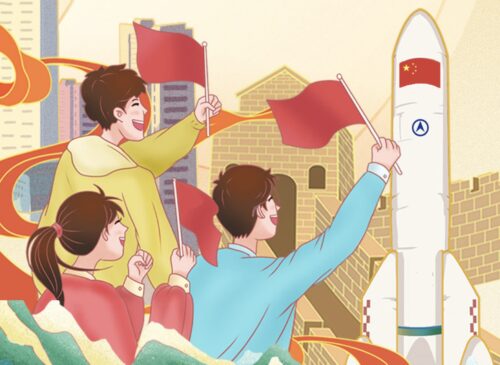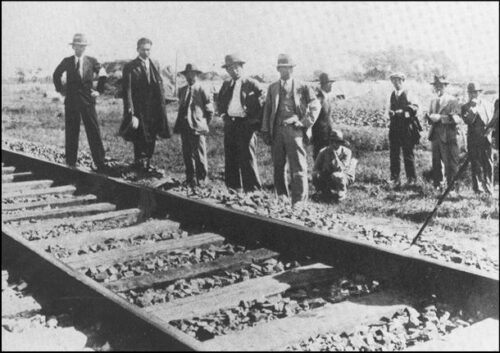Chinese state media and Hong Kong’s education bureau slam local exam authority over history question about Japanese occupation
Hong Kong’s education bureau announced (in Chinese) today that it had launched an investigation into the local Examinations and Assessment Authority (HKEAA) after a history question concerning colonial Japan’s invasion of China appeared in this year’s university entrance test. The question has caused widespread indignation in the mainland and drawn harsh condemnation by Chinese state media, including Xinhua News and People’s Daily.

Hong Kong’s education bureau announced (in Chinese) today that it had launched an investigation into the local Examinations and Assessment Authority (HKEAA) after a history question concerning colonial Japan’s invasion of China appeared in this year’s university entrance test. The question has caused widespread indignation in the mainland and drawn harsh condemnation by Chinese state media, including Xinhua News and People’s Daily.
The controversy emerged on May 14 when about 52,000 candidates in Hong Kong attended the city’s Diploma of Secondary Education (HKDSE) exam, which is a standardized college entrance test. In the test’s history section, examinees were asked if they agreed with the statement “Japan brought more good than harm to China in the period between 1900 and 1945.”
Attached to the question were some excerpts that the students were encouraged to use as references to bolster their arguments. They included a letter from Huáng Xìng 黄兴, one of the founders of the Kuomintang (KMT) and the Republic of China, who wrote to a Japanese politician in 1912 asking for financial help to overthrow the Qing government. Also provided was some text about the establishment of a Japanese school to teach Chinese students about “law and politics,” as well as a one-year loan contract in 1912 by a Japanese company to the early Republic of China government.
Predictably, the backlash was swift and fierce. After the question was made public, plenty of critics, including an array of pro-establishment figures in Hong Kong, harshly criticized it for not mentioning the crimes committed by the Imperial Japanese Army during the Second Sino-Japanese War, from 1937 to 1945, which included a mass slaughter of Chinese citizens.
The Hong Kong education bureau joined the chorus of critics quickly. In a statement released on May 14, the bureau accused HKEAA of attaching “one-sided information” to the question, thus making it a “leading one” that “may lead candidates to reach a biased conclusion, seriously hurting the feelings and dignity of the Chinese people, who suffered great pain during the Japanese invasion of China.”
It also urged HKEAA to “seriously follow up the matter,” “provide reasonable explanations to the public,” and “review the question-setting mechanism comprehensively to make prompt improvements with a view to maintaining the fairness, impartiality, and credibility of the HKDSE Examination.”
At a press conference on May 15, Yáng Rùn Xióng 杨润熊, the secretary of education, doubled down on the bureau’s condemnation of HKEAA, saying that the question should be deemed invalid because it failed to “reflect students’ knowledge” and the candidates may get an unfair assessment if they disagreed with the “biased” materials.
The question sparked a wave of outrage on Chinese social media. Some commenters demanded punishment for treason for those who were involved in the question-designing and vetting process. “These people are helpless because they are rotten to the core. They can’t tell right from wrong because they are so occupied with their own political agenda,” a Weibo user commented.
The anger has been further aggravated by editorials (in Chinese) published by Chinese state media, including Xinhua News and People’s Daily, which lambasted HKEAA for “distorting historical truth, betraying ancestors, and trampling upon the feelings and dignity of Chinese people.”
However, some people defended HKEAA, worrying that the backlash would result in more self-censorship by employees at HKEAA and threats to academic freedom in Hong Kong. A Facebook post (in Chinese) by Zhèng Jiālǎng 郑家朗, vice-chair of pro-democracy group Demosisto, slams the education bureau for “blatantly pressuring” HKEAA to self-censor for political reasons. “If this question gets scrapped eventually, it sends a message that students are forbidden from independent thinking. Will political correctness dominate exams in Hong Kong in the future? Will Hong Kong only award students who can recite official answers?” he wrote.
The controversy is indicative of a larger educational dispute in Hong Kong, where schools and universities have increasingly become an ideological battleground as authorities in Beijing and pro-democracy policymakers fight to control the content of textbooks. Only days before the history question debate, Carrie Lam (林鄭月娥 Lín Zhèng Yuè’é), the city’s pro-Beijing Chief Executive, raised alarm about the prospect of Hong Kong education becoming a “doorless chicken coop” without regulation, saying that students should be protected from being “poisoned” by what she called “false and biased” information.






